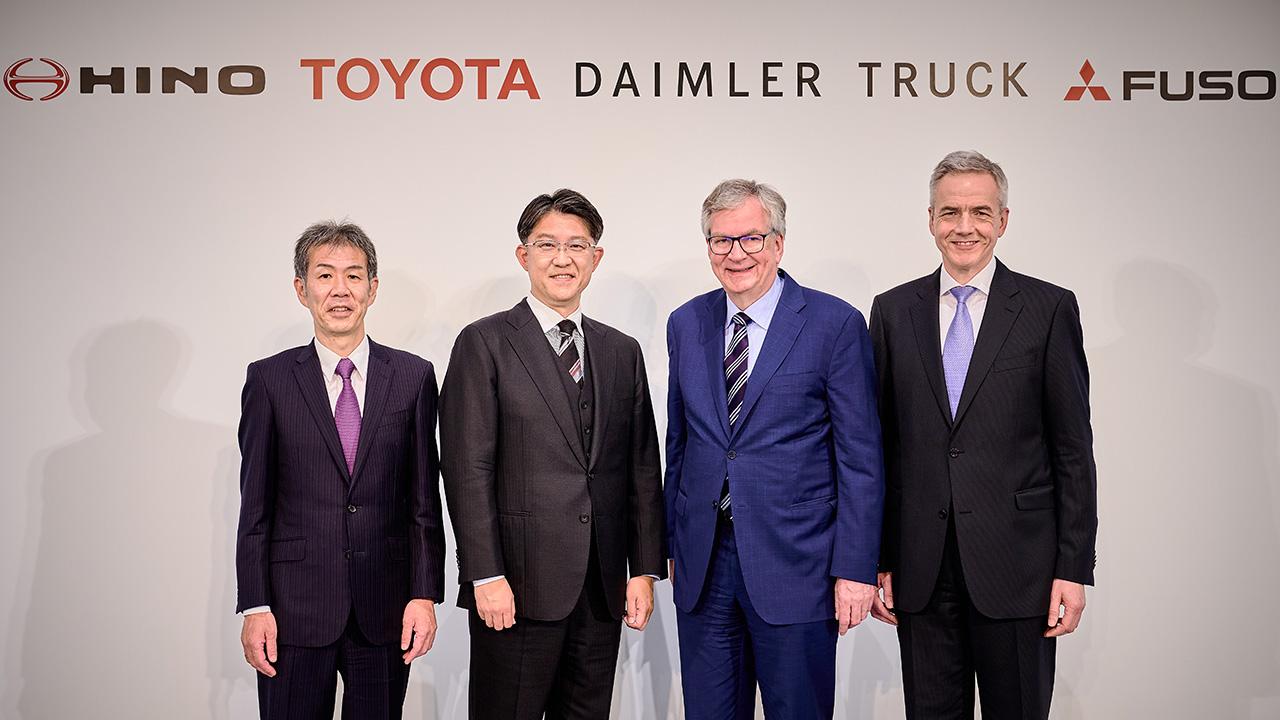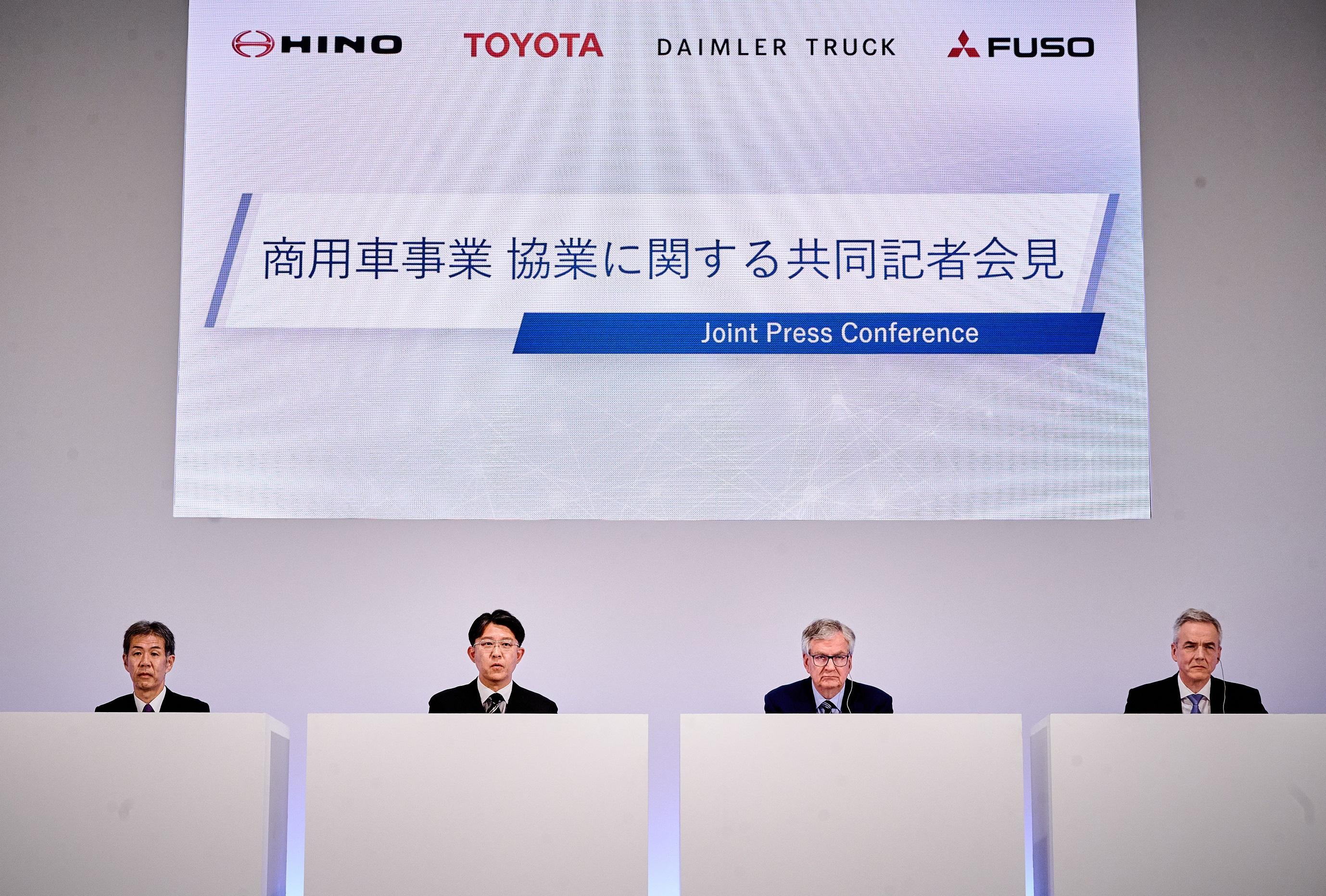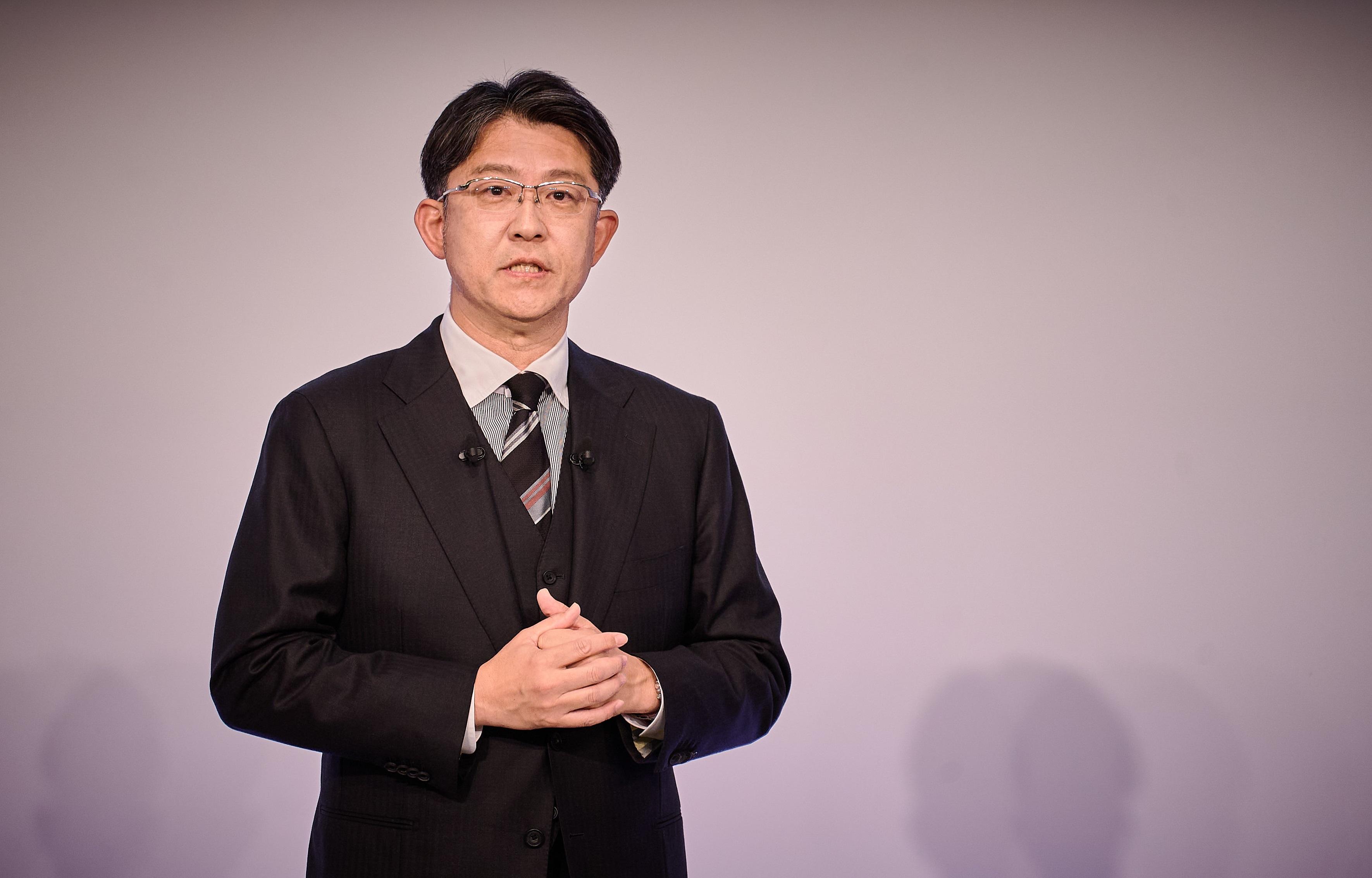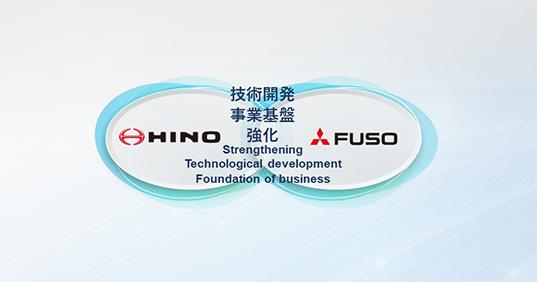On May 30, it was announced that Mitsubishi Fuso Truck and Bus (MFTBC) and Hino Motors had agreed to merge.

They will seek economies of scale through joint development, procurement and production. At the same time, the pair will accelerate the decarbonization of the transportation industry by drawing on the CASE technologies of their respective parent companies, Daimler Truck and Toyota.
The merger would also entail the creation of a parent company, with shares split equally between Daimler Truck and Toyota.
Although Mitsubishi Fuso and Hino will become wholly owned subsidiaries of the new company, both will retain their brands and sales networks in Japan and abroad. They plan to finalize the deal in the fiscal year to March 2024, with the merger expected to happen by the end of that calendar year.
The heads of all four companies gathered to map out their goals and vision for the partnership. Toyota Times shared their keynote from the joint press conference.

Our focus area is hydrogen – President Sato (Toyota)
First, Toyota President Koji Sato provided background information and an overview of the business merger.

president sato
Today, Daimler Truck, Mitsubishi Fuso, Hino and Toyota have agreed to work together to strengthen their commercial vehicle businesses.
Mitsubishi Fuso and Hino will merge on an equal basis to enhance global competitiveness. In addition, our four companies will pursue new possibilities in commercial vehicles by leveraging the CASE technologies of Daimler Truck and Toyota.
Today I want to talk about the goal and vision behind this partnership.
Behind this partnership is a strong desire, shared by our four companies, to build the future of commercial vehicles together.
Commercial vehicles sustain our daily lives through the movement of people and goods, serve as an important source of mobility, and are part of social infrastructure. Integrating these vehicles into social systems can further enhance the value of mobility.
To achieve carbon neutrality, commercial vehicles, which currently account for 40% of global automotive CO2 emissions, must evolve into an environmentally friendly mode of transportation.
In other words, the challenge of building a new future for commercial vehicles will play an important role in creating a thriving mobile society.
The key to this future lies in CASE technologies such as electrification and autonomous driving. These technologies can only serve society if they are widely adopted and require the ability to develop them.
In this CASE era, the relatively small size of the Japanese commercial vehicle market means that individual companies will struggle to survive on their own.
To create a thriving mobile society, what we need is not just competition, but all of us working together to create the future.
With this in mind, we hope that our quadripartite partnership will help accelerate the diffusion of CASE technology.
Through the merger, Mitsubishi Fuso and Hino will seek to strengthen synergy and streamline development, procurement and production processes, thereby enhancing their competitiveness and business platform to pursue. CASE technologies.

Daimler Truck and Toyota will combine their respective strengths to support the merged companies using CASE technologies, while working to further enhance the technical capabilities between these companies.
The combination of our four companies also opens up new possibilities for the future.
In particular, we consider initiatives in the hydrogen sector as a key area of focus for cooperation, contributing to the creation of a prosperous mobile society.
Daimler Truck and Toyota were quick to realize the potential of hydrogen power and have promoted the development of fuel cell technology and hydrogen engines.
We have also worked to commercialize products and establish a hydrogen infrastructure to promote widespread use of these technologies.
Together with Mitsubishi Fuso and Hino, our companies plan to accelerate the adoption of hydrogen mobility, starting with commercial vehicles.
Our joint effort to create this future began with the merger of Mitsubishi Fuso and Hino to establish a business foundation to compete in the global arena.
Through strong competition, we will contribute to a better future for commercial vehicles.
With Mr. Daum, CEO of Daimler Truck, we talked about shaping the future of commercial vehicles, the need for scale in driving the widespread adoption of CASE technologies, and the idea that the future The future is ours to create together.
While sharing these aspirations and values, we discussed how cooperation should come together.
This process allowed us to validate each other's visions and I believe we had very meaningful discussions.
I would like to invite Mr. Daum to share his thoughts on this partnership.






